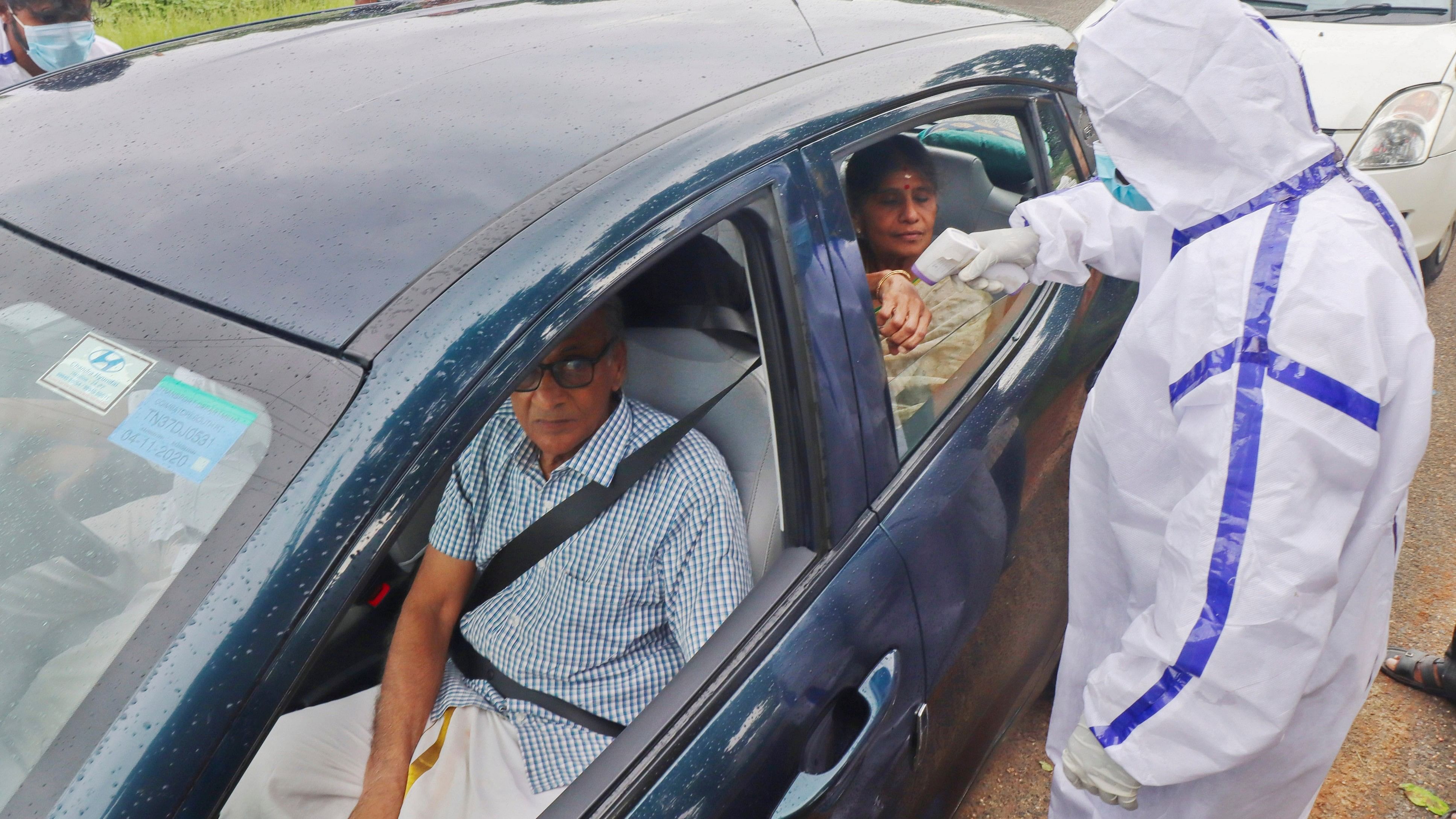
A medic conducts thermal screening of commuters entering the state from Kerala as a precautionary measure against the spread of Nipah virus.
Credit: PTI Photo
Bengaluru: The Karnataka government on Thursday issued an advisory asking the people of the state to avoid travelling to Malappuram district in neighbouring Kerala where a 14-year-old boy died on July 21 after he became infected with the Nipah virus.
The Commissionerate of Health and Family Welfare, however, said in a statement that as the case reported at Malappuram was one of Acute Encephalitis Syndrome (AES) (a Nipah symptom), and further high risk contacts have been tested negative, the chance of human-to-human transmission seems very less and there is no need to panic at this moment.
“But as a precautionary step, one may avoid travel until it is very essential, to the affected areas of Kerala (Malappuram district), till the area is declared safe of Nipah virus infection,” the Commissionerate said.
It said no cases of Nipah have been reported in Karnataka till date.
“The state of Karnataka has been taking all necessary actions to curtail the cross-border transmission of the infection from Kerala since the outbreak was reported,” it said.
Fruit bats are the usual carriers of the virus, it said, and added that humans can become infected by accidentally consuming fruits bitten by bats or contaminated with its saliva.